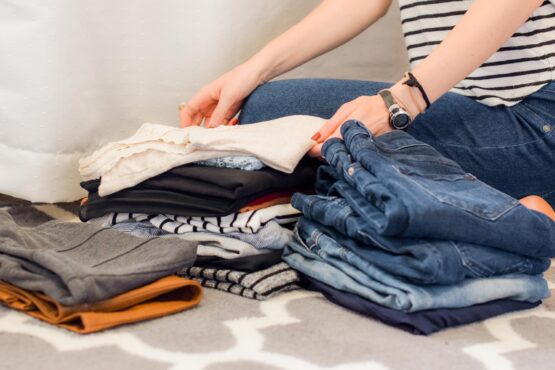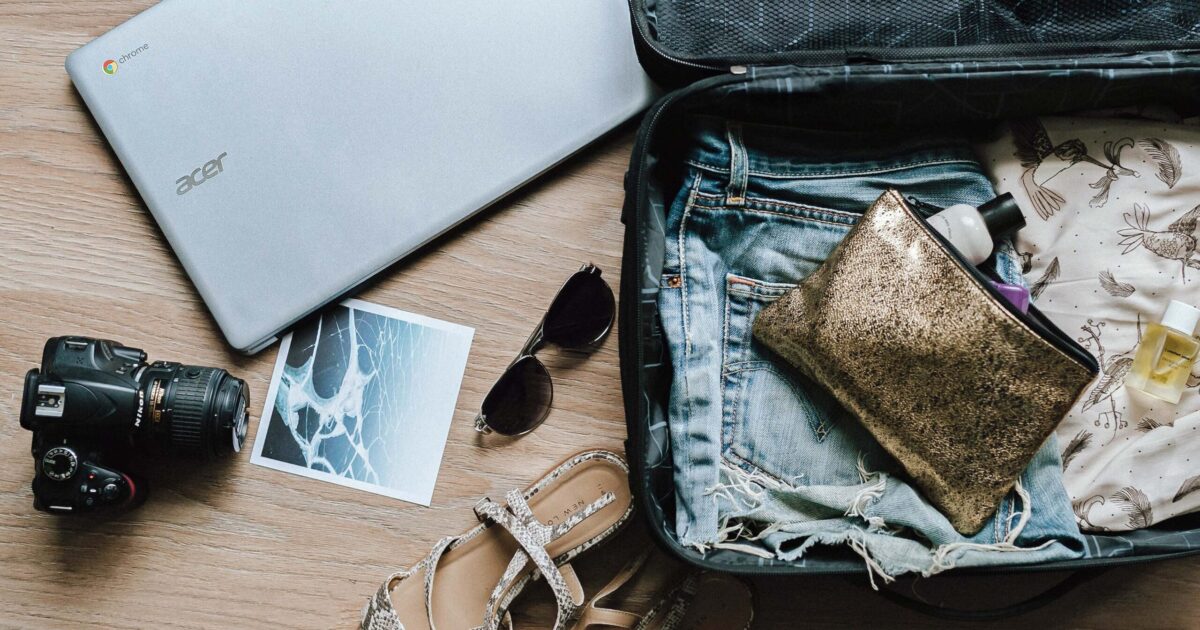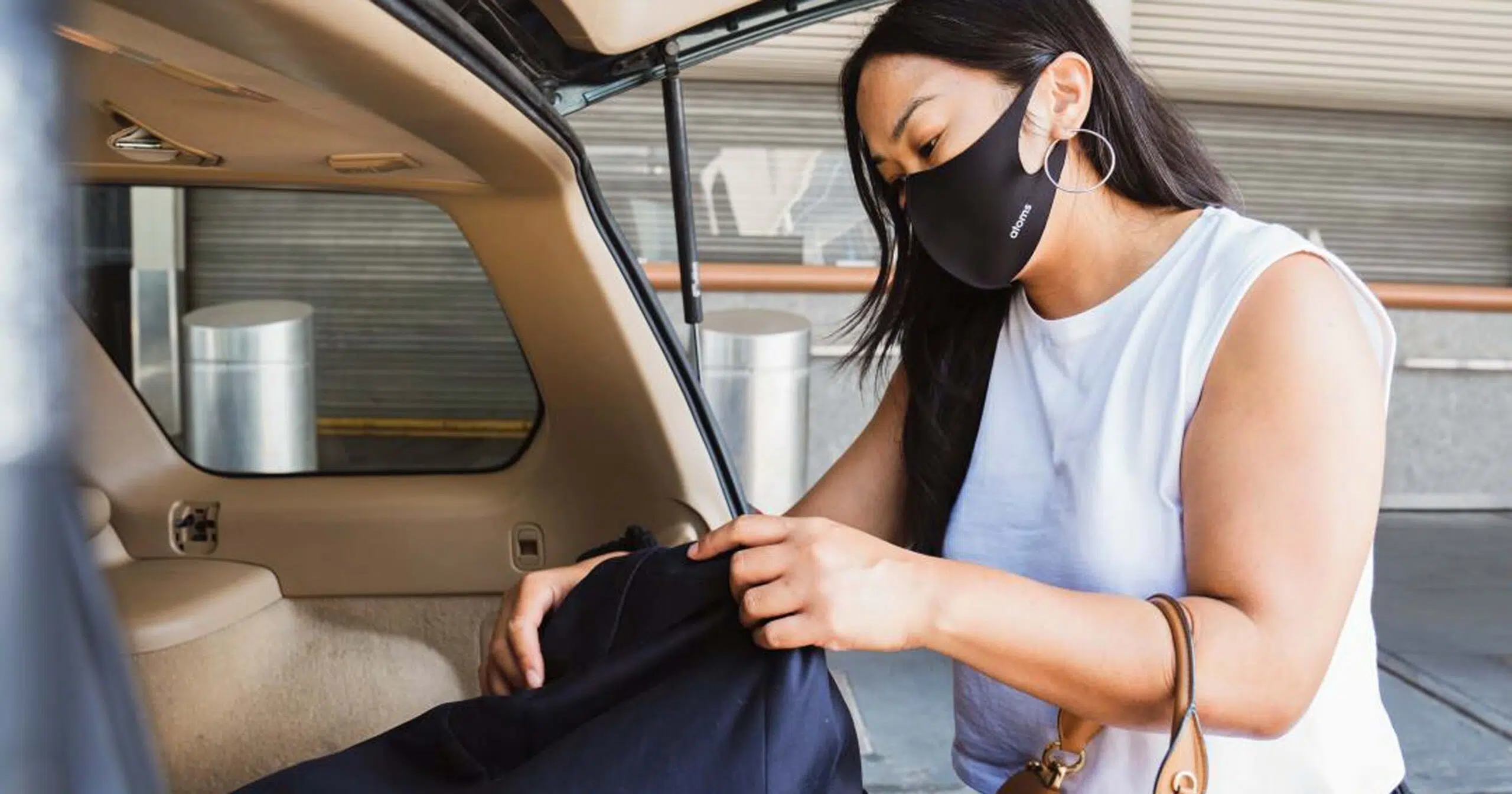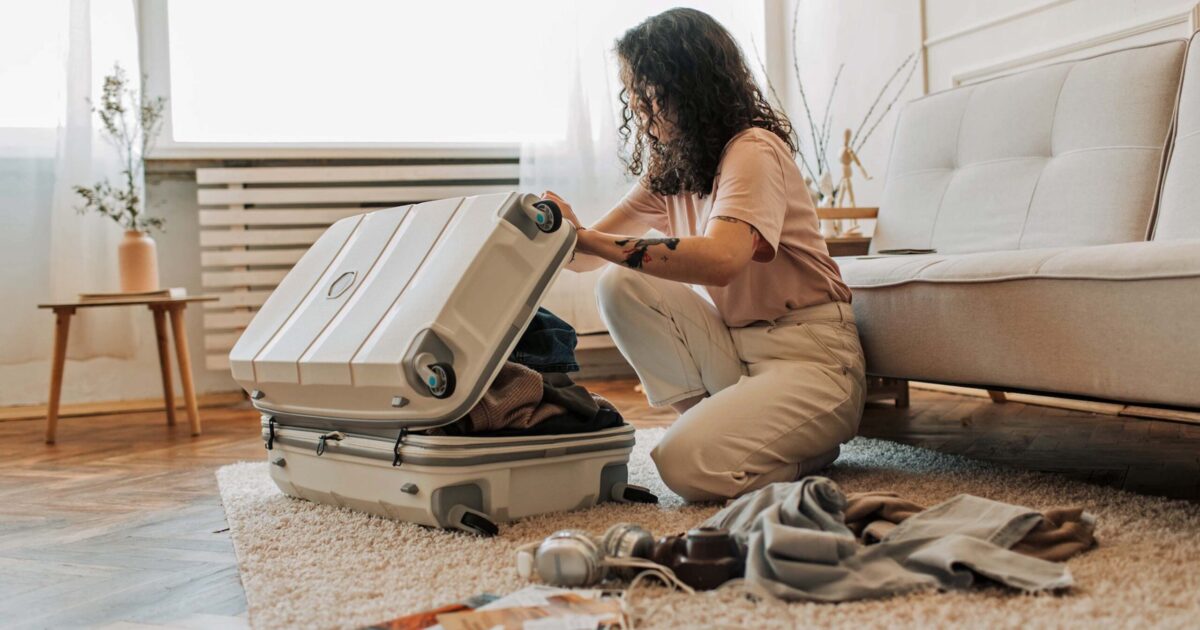Packing up your life for 13 weeks away on a travel nursing assignment can cause a great deal of anxiety for many travel nurses, myself included. I have a history of being a heavy packer for leisure vacations, and this habit has spilled over into my travel nursing journey. Over time, as I’ve traveled across the country and completed more assignments, I’ve become a better, lighter and more organized packer. Here are a few tips to help you get started.
Planning for What to Pack
Two main factors help determine how you should begin to pack:
How are you getting to your next assignment?
If you’re traveling by car, there’s usually room to pack things in and organize your belongings. Details to consider include the size of your car and whether it can tow a trailer if you’re bringing one. Think about how suitcases, totes, boxes and bins will fit in your trunk and backseat. Of course, if you’re commuting with your family or a nursing roommate, you’ll need to plan for their seating and belongings, too.
If you’re traveling by air, you must decide how many bags you want to check. Airlines often have a limit on the number of bags you can check, so if you think you may need to bring more than two 50 lb. bags, call the airline and ask before you commit to that idea. Be prepared to pay for each piece of luggage you want to check. Unfortunately, the days of airlines, including luggage in basic economy fares, are long gone.
What will your short-term housing provide?
Other factors that affect packing are things like whether certain items are included in your accommodations, such as kitchenware and linens, or if the housing has laundry in the unit. Pack for the activities you enjoy outside of work, and consider if there’ll be a seasonal change in temperature while you’re on assignment. You should also determine ahead of time what supplies it makes sense to bring along vs. purchasing when you arrive.
Also, if you don’t plan on going back “home” in between assignments to repack, you have to decide what items are the most important and functional to bring along.
Related: How to Successfully Travel Nurse with Family
7 Items Every Travel Nurse Should Pack
1. Scrubs: This may seem like an obvious suggestion, but make sure to check with your facility and ask if they require a certain color uniform or shoes. Bring four pairs of scrubs. Most likely, you won’t be working more than four consecutive days. If for some reason, you’re doing five 8-hour shifts, bring five pairs.
If you don’t have laundry in the unit or building where you’re staying, I would suggest bringing an extra shirt or two. I find my scrub pants are more re-wearable than shirts (if absolutely necessary). You only need one pair of work shoes. Personally, I won’t wear my work shoes anywhere other than work, but some people combine gym sneakers and work shoes to save some space.
Tip: If you currently work in a hospital that provides you with things like patient-specific stethoscopes, clamps/forceps and scissors, you should know that this isn’t the case everywhere. More often than not, I’ve been asked to provide or purchase these items on my own. You can always borrow from a coworker, but having your own is much easier.
2. Non-Work Clothes: Whether you like to dress up and go out or spend time in the wilderness, you need to prioritize important items and make sure your clothes are weather-appropriate. Bring tops and bottoms you can easily mix and match. Remember, you don’t need to pack for the entire 13 weeks. Pack as if you’re going away for a few weeks and plan to do laundry a few times. To help you get started, we’ve provided a full packing checklist below to help you plan your trip.
3. Electronics: Pack your laptop, e-reader, tablet, phone, camera, etc. and associated chargers. It’s helpful if you can share a charger among a few items and reduce the number of cords you need. If you’re driving, a car charger and mount that allows you to look at your phone hands-free are both useful items to have. Avoid bringing larger electronics (like a TV) and instead rent one if it’s not provided in your housing.
4. Medications: Bring a full supply of any over-the-counter or prescribed meds you use regularly. Make sure to bring copies of your prescriptions or download your pharmacy’s app. Sometimes you can ask your physician to provide you with more than one month’s supply of medications or use a mail-order option that sends you several months’ worth of meds at once. It’s much more convenient to be all set for the first month or two of your assignment while trying to sort out insurance and what local pharmacy to use. You should also pack a travel supply of headache, indigestion and allergy meds, plus a first aid kit to keep in your car.
5. Paperwork: We live in the digital age, but always bring along hard copies of key things like your nursing licenses, certifications, birth certificate, passport/ID and social security card. Also, make sure you have the hard copies or originals of your high school and college diplomas. Diplomas are frequently a last-minute request by a state nursing board or facility that travel nurses usually aren’t expecting. Keep all paperwork on your person (not packed away), no matter your mode of transit. Don’t forget non-nursing-related things like copies of your car insurance and registration, any health insurance documentation and paperwork you may need for taxes (if your assignment falls during that season). Also, keep any paperwork you’re using to document your permanent tax home.
Related: Organization Tips for Travel Nursing Assignments
6. Pet Items: If you’re bringing along a pet, remember to bring items that help make them comfortable in a new place. A dog bed, cat toys, dishes, food/treats and leashes are essentials. Any medications and flea/tick prevention should also be packed. Ask your vet for a copy of your pet’s records to have with you in case you need to make a visit to a new provider during your assignment. A kennel may also be a good idea if your pet is prone to accidents or could chew on furnishings in your rental home.
7. Caffeine: If you adore your coffee maker (or tea kettle) as much as I love mine, bring it. Purchasing coffee/tea every day can get expensive, and you don’t want to get stuck with a subpar coffee maker. Check out an AeroPress if you’re looking for something portable and easy to use. If you have a favorite brand or flavor of coffee at home, bring a bag or K-cups along. It’s a nice treat when you wake up for the first time in your new home.
How to Pack for a Travel Nurse Assignment
Specifics of packing depend on how you’re traveling and what you want to keep at your permanent tax home (if you’re claiming one).
I highly recommend using vacuum-sealed space-saving bags, especially if you’re driving. I never believed in them before my last cross-country trip, but wow, was I missing out! They fit considerably more than the big plastic tubs or large boxes, are super easy to use and pack much easier into a car. Save space by using some of your clothing and/or towels to wrap fragile items in the boxes and tubs. Since you’re bringing the clothes and towels anyway, this saves you the cash you were going to spend on bubble wrap and avoids the mess of newspaper.
Packing cubes are another great method for organizing your clothes as you pack. I lived out of cubes on my recent 40-day van adventure and it was easy to find what I needed quickly. If you’re flying, this is a great choice to pack your luggage efficiently. I find the small/medium cubes are best, the large ones leave me feeling less organized. Roll your clothes to maximize the space of each cube.
Plastic tubs and boxes are still useful for bulkier, non-compressible items (like that priceless coffee maker) and can be used in conjunction with vacuum bags to organize a car. You can ship the boxes or tubs if you aren’t driving to your destination. Explore USPS, UPS and FedEx shipping options by weight or standard box size to compare prices.
When you pack your car, make sure to put anything you need in the front seat for easy accessibility. You don’t want to have to dig around or move big items for access to toiletries, paperwork, chargers and clothes you’ll need during your trip. Always pack your “must-haves” first just in case everything doesn’t fit so that you avoid unpacking the whole car if you need to re-prioritize. When packing, try to distribute weight evenly on both sides of the car to preserve your tires and reduce the wear and tear on your car.
Travel Nurse Packing List
Below is a basic packing list for travel nurses, assuming you’ll be gone for longer than the course of one 13-week assignment. Use this list as a guide so you don’t forget to bring along something important. Your destination’s climate, your own personal needs and whether you’re travel nursing with a family will affect your list, but this is a great starting point to fill up your suitcases.
Basic Travel Nurse Packing Checklist
- 2-3 plain T-shirts
- 2-3 dressy or graphic tees
- 2-4 casual/layering tank tops
- 2 pairs of jeans
- 1 pair of casual pants
- 3 pairs of leggings/bottom layer pants
- 1 button-down shirt
- 2 casual dresses/2 men’s casual wear shirts
- 2 pairs of shorts
- 2 pairs of athletic bottoms
- 2 athletic tops
- 1 pair of sneakers
- 1 pair of hiking shoes
- 1 pair of water shoes/sandals
- 1 pair of dress shoes
- 1 pair of flip flops
- 1 pair of walking sandals
- 15 pairs of underwear
- 2-3 bras in neutral colors
- 2 sports bras
- 4 pairs of work socks/compression stockings
- 7 pairs of everyday socks
- 1-2 sweatshirts/mid-layer pullovers
- 1-2 sweatpants/pajama pants
- 1 warm sweater
- 2 baseball caps/winter hats
- Gloves/scarf/boots (if needed)
- 1 light jacket, rain jacket and/or coat
- Bathing suit/swim trunks & beach towel
- Toiletries, hair care, sunscreen, lotion
Ready to hit the road? I wish you safe and happy travels! Explore travel nursing assignments across the country and start planning your future now.













Excellent! Thanks for sharing.
Thanks! We’re glad you enjoyed it!
This helps.
Great’
Amazing